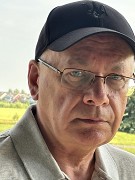Authors
Antonie Dolezalova1; Anna Sosnowska3; Zarko Lazarevic2; Volodymyr Kravchenko4; 1 Charles University, Czech Republic; 2 Institute of Contemporary History, Slovenia; 3 University of Warsaw, Poland; 4 Canadian Institute of Ukrainian Studies at the University of Alberta, Canada Discussion
For forty years of the twentieth century, the Iron Curtain divided Western and Eastern Europe. In the most common historical narrative, scientific work during the Cold War had the non-cooperative nature due to socialist scientists’ incapability and disinclination to engage openly in international discussions. The proposed round table wants to discuss the multiple contemporary ideological and political circumstances created by governing regimes in socialist countries and how these influenced scientific work and individual scientists' careers on one hand and the options scientists had - and utilized - to develop their research in collaboration with their Western colleagues on the other.
Despite the striking links among socialist countries during the Cold War era, there were different characteristics of openness, national traditions, the maturity of the fields, the state of Marxism, or the structure of organized research in individual socialist countries. At the same time, there were scholars who attempted to eliminate the Iron Curtain and strove to break through obstacles to freedom in the transfer of scientific ideas. The organizers belief to cast new light on the conditions under which scientists had to work in socialist countries and the flow of ideas between the East and West during the Cold War from the perspective of the eastern side of the Iron Curtain. 

